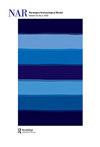Choosing the Right Weapons and Arenas - Comments to Elliott and Warren
IF 1.1
3区 历史学
0 ARCHAEOLOGY
引用次数: 0
Abstract
Benjamin Elliott and Graeme Warren have bravely taken on the project to write a debate article for Norwegian Archaeological Review about colonialism and the European Mesolithic. The dialog-oriented shape they have given the text makes it valuable and thought provoking and the authors certainly deserves credit for this, as most decolonising debates resembles the trench warfare of the First World War, not very attuned to dialog. Their arguments are many and complex and the format of the debate makes it difficult to address all the issues that they raise. I therefore limit my comments to just a few themes. These are the European or Western peccatum originale; the benefits of universality; the relation between structure and history; and finally, the significance of the archaeological record itself. I find it fascinating that the text de facto presents the core of the decolonisation debate as a theological problem of the peccatum originale or original sin in western culture. Few people in European societies and even fewer researchers in archaeology have taken a direct or active part in oppressing indigenous populations across the world. Still, their thinking, their language and their way of life are oppressing. This is, as far as I can see the classical dilemma of the original sin. I must admit that I am very sceptical to this doctrine, and I find it paradoxical that this very western and Christian problem, defines the debate about decolonisation – a debate aimed at criticising the very same phenomenon. This does not make the debate or problems per se (the very uneven distribution of capital, influence and power in the world today) irrelevant or silly, it raises however the question of how we are best served to investigate, discuss and debate injustice in the world today. In this respect, I doubt that colonialism and post-colonialism are the best tools for making intellectual or political progress. The reason for this is first that I think the problems are much more complicated than the fact that some nations and people in the modern era colonised other people’s land. Second, the terms themselves – colonialism, post-colonialism – come to act as a metaphor of everything wrong and thus preclude any attempt to make a precise analysis of the problems at stake. Just like the terms processual and post-processual mobilised generations of archaeologists in the 70s, 80s and 90s, (post)-colonialism also effectively mobilises current archaeological thinking – but does the term describe something of substance? To me it seems much more like a repetition of a classical Christian and western paradox, introduced to control through penance – not to liberate or enlighten. In this perspective, it is interesting that Elliot and Warren emphasise that the archaeologists that have been inspired by the ‘ontological turn’ in their interpretations of Mesolithic societies abstained from letting选择正确的武器和竞技场-对艾略特和沃伦的评论
Benjamin Elliott和Graeme Warren勇敢地承担了这个项目,为《挪威考古评论》撰写了一篇关于殖民主义和欧洲中石器时代的辩论文章。他们赋予文本以对话为导向的形式,使其具有价值和发人深省的思考,作者们当然值得称赞,因为大多数非殖民化辩论类似于第一次世界大战的堑壕战,不太适应对话。他们的论点很多,很复杂,辩论的形式使他们很难解决他们提出的所有问题。因此,我的评论仅限于几个主题。这些是欧洲或西方原产的山核桃;普遍性的好处;结构与历史的关系;最后,考古记录本身的意义。我觉得很有意思的是,文本事实上将非殖民化辩论的核心呈现为西方文化中的原罪或原罪的神学问题。欧洲社会中很少有人,甚至更少的考古研究人员直接或积极参与压迫世界各地的土著人口。尽管如此,他们的思想、语言和生活方式仍令人压抑。在我看来,这就是原罪的经典困境。我必须承认,我对这一学说持怀疑态度,我发现这一非常西方和基督教的问题定义了关于非殖民化的辩论——这场辩论旨在批评同样的现象,这是自相矛盾的。这并没有使辩论或问题本身(当今世界资本、影响力和权力的分配非常不均衡)变得无关紧要或愚蠢,而是提出了一个问题,即如何最好地为我们调查、讨论和辩论当今世界的不公正现象服务。在这方面,我怀疑殖民主义和后殖民主义是取得知识或政治进步的最佳工具。原因首先是,我认为问题比现代一些国家和人民殖民他人土地的事实要复杂得多。其次,术语本身——殖民主义、后殖民主义——开始成为一切错误的隐喻,从而排除了对所涉问题进行精确分析的任何尝试。就像70年代、80年代和90年代动员了一代又一代考古学家的过程和后过程一样,(后)殖民主义也有效地动员了当前的考古思维——但这个词描述的是实质性的东西吗?对我来说,这似乎更像是古典基督教和西方悖论的重复,通过忏悔来控制——而不是解放或启蒙。从这个角度来看,有趣的是,Elliot和Warren强调,考古学家在对中石器时代社会的解释中受到了“本体论转向”的启发,他们放弃了让
本文章由计算机程序翻译,如有差异,请以英文原文为准。
求助全文
约1分钟内获得全文
求助全文
来源期刊

Norwegian Archaeological Review
ARCHAEOLOGY-
CiteScore
2.10
自引率
0.00%
发文量
13
期刊介绍:
Norwegian Archaeological Review published since 1968, aims to be an interface between archaeological research in the Nordic countries and global archaeological trends, a meeting ground for current discussion of theoretical and methodical problems on an international scientific level. The main focus is on the European area, but discussions based upon results from other parts of the world are also welcomed. The comments of specialists, along with the author"s reply, are given as an addendum to selected articles. The Journal is also receptive to uninvited opinions and comments on a wider scope of archaeological themes, e.g. articles in Norwegian Archaeological Review or other journals, monographies, conferences.
 求助内容:
求助内容: 应助结果提醒方式:
应助结果提醒方式:


